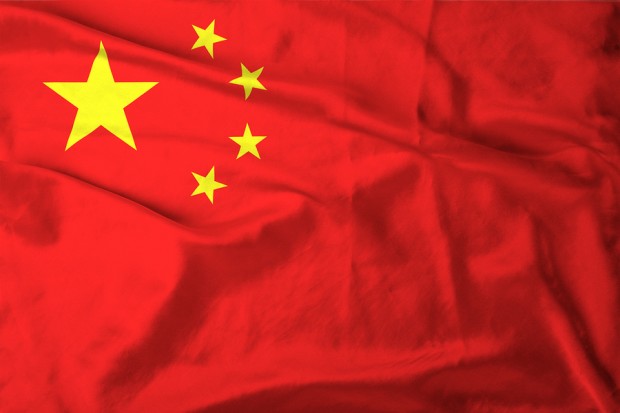The revolution in China’s insurance industry that helped unleash about $80 billion of acquisitions started with a whimper and ended with a bang.
With little fanfare, China’s top insurance official, Xiang Junbo, in 2012 rolled out rules giving insurers greater freedom to pursue higher returns and invest their income in overseas assets. Within a year, insurers had seized on the opportunity to peddle lucrative investment-type products and use the proceeds to fund an unprecedented buying binge spanning the globe.
The most flamboyant among them was Anbang Insurance Group Co., whose 2014 acquisition of New York’s Waldorf Astoria hotel catapulted it into the public eye and made it an emblem of the industry’s spectacular rise. Not anymore: Anbang’s Chairman Wu Xiaohui has been detained for questioning since mid-June, while the policies fueling its growth have been all but banned by regulators. Meanwhile Xiang, the former head of the China Insurance Regulatory Commission, is under investigation for undisclosed violations.
This week, as top Chinese leaders gather for a financial work conference held every five years, Anbang’s fate offers insight into how eager officials are trying to do away with an era of unchecked financial innovation and reckless spending and instead promote stability. Against that backdrop, authorities have discussed the possibility of pushing Anbang to sell assets, and a senior disciplinary official is widely seen as a candidate to replace Xiang, people familiar with the matter said.
“Anbang was arguably the first, the most aggressive and the most willing to test the regulator’s ‘bottom line’,” said Christopher Beddor, an associate at Eurasia Group. “If there is a lesson here, it’s that China’s leadership appears fundamentally uncomfortable with headline-grabbing volatility or perceived disorder of nearly any kind. Xiang’s replacement will likely oversee a more conservative CIRC than what we have seen over the past five or six years.”
Anbang declined to comment. The CIRC didn’t reply to an email seeking comment.
Choking Growth
The five-year period since Xiang’s April 2012 speech and the last financial work conference illustrates perhaps better than any other episode the challenges China faces as it seeks to contain risks while adopting a more market-based economy.
In the insurance business, the abrupt regulatory shift threatens to choke off a key growth engine at Anbang and competitors such as Foresea Life Insurance Co. and Evergrande Life Insurance. The potential winners include China Life Insurance Co. and Ping An Insurance (Group) Co., which stuck with old-fashioned protection-type policies and now stand to benefit as regulators favor more traditional offerings.
Anbang’s rise in recent years was remarkable even by the standards of a reinvigorated industry that was eager to push the boundaries. One product, launched in the year following the rule changes and called Anbang Longevity Sure Win No. 1, boosted its life insurance premiums almost 40-fold in 2014 by offering yields as high as 5.8 percent. That helped provide fuel for Anbang’s more than $10 billion of overseas acquisitions since 2014 and equally ambitious investing in the domestic stock market.
Rapid Growth
“Innovation” was key in growing a car-insurance startup into a 1.9 trillion yuan ($280 billion) powerhouse in just over a decade, Vice Chairman Yao Dafeng, who’s now part of a team running Anbang amid the government probe, said in an interview last year. For Anbang, that included selling products that offered higher returns than most competitors and could be redeemed in as little as one year.
“You can never win by following others,” Yao said in the September interview.
The 2012 regulations, which came to be known as the “13 new insurance investment rules,” gave insurers greater freedom in investing insurance funds into areas such as global real estate. By January 2013, CIRC Vice Chairman Chen Wenhui was urging insurers to innovate and develop products “with characteristics of wealth management.” Chen did make clear that insurers weren’t allowed to “turn innovation into illicit behavior.”
Deal Spree
Nevertheless, insurance executives seized on their newfound liberty. Chinese insurers’ investment assets have doubled since 2012 and the returns on those assets have surged, the CIRC said in February. The insurers have struck about $80 billion of acquisitions over the past five years, and another $20 billion of mooted deals have been canceled or terminated, Bloomberg-compiled data show. Anbang itself walked away from what would have been its largest purchase, a $14 billion takeover of Starwood Hotels & Resorts Worldwide Inc.
By early last year, regulators had grown uneasy with the flurry of activity. The CIRC started clamping down on what it termed “improper innovation” and tightened rules on high-yield, short-term investment policies. Both Anbang and Foresea Life, another aggressive seller of such products, got caught up in the crackdown.
Anbang this year stopped selling Sure Win No. 1, which accounted for more than 70 percent of the life unit’s sales in the three years through 2016. Many large banks have stopped distributing its products, crippling a dominant sales channel for the company. And the firm was banned from applying for regulatory approval to introduce new life products for three months starting May.
“Anbang is a typical reflection of what happened in this regulatory cycle,” said Grace Zhou, a Hong Kong-based analyst at ICBC International. “They certainly did a good job seizing the time window a few years ago, but now they’re facing a very painful shift in their business model.”
One key challenge is building a sizable force of sales agents, an effort both costly and time-consuming. That puts insurers like Anbang at a disadvantage to larger companies such as China Life and Ping An, which employ more than 1 million agents each. Meanwhile, solvency ratios — which measure an insurer’s ability to pay claims — have dropped sharply for Anbang and some of its peers, according to Ping An Securities Co.
The “limited few” insurers that expanded investments blindly could easily run into cash-flow difficulties in the event of sales suspension or unusually large policy surrenders, the official Xinhua News Agency reported Thursday, citing Chen, the CIRC vice chairman who in 2013 urged insurers to adopt wealth-management policies. Such risks at those insurers can be resolved for the short term by selling some of their holdings in the capital market through block trades, he was cited saying without naming any company.
Now that they’ve tamed the most speculative corners of the industry, regulators are facing the task of rebuilding the sector around its most basic premise: insuring individuals and companies against risk.
Chen on July 5 cited a 60 percent slump in life insurers’ revenues from such products in this year’s first five months as evidence that the industry is returning to surer footing. During the same period, premium income from regular insurance policies jumped 26 percent, he said.
“The insurance industry, as a special one that manages risks, must enhance controls of its own risks,” Chen said at an industry conference in Beijing. Insurers should “never transmogrify from ‘risk managers’ into ‘risk makers’ .”





















 RLI Inks 30th Straight Full-Year Underwriting Profit
RLI Inks 30th Straight Full-Year Underwriting Profit  Flood Risk Misconceptions Drive Underinsurance: Chubb
Flood Risk Misconceptions Drive Underinsurance: Chubb  What Analysts Are Saying About the 2026 P/C Insurance Market
What Analysts Are Saying About the 2026 P/C Insurance Market  Execs, Risk Experts on Edge: Geopolitical Risks Top ‘Turbulent’ Outlook
Execs, Risk Experts on Edge: Geopolitical Risks Top ‘Turbulent’ Outlook 





